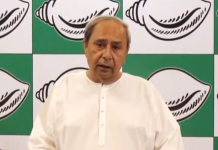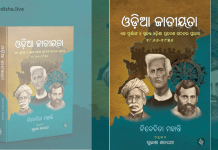Bhaskar Parichha
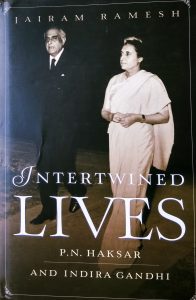
After Indira Gandhi became prime minister, several key decisions were taken which have remained significant milestones in post-independent India, besides turning out to be part of the political narrative. Some of these diktats include the abolition of Privy Purse, bank nationalization, birth of Bangla Desh, Sheikh Abdullah’s return to the political mainstream, the Shimla Agreement, the first nuclear test and Sikkim becoming part of India.
Very little is being discussed today about these turning points in India’s opinionated history; even fewer is the talk about the man who did the homework for all these major decisions of Indira Gandhi. He was none other than Parmeshwar Narain Haksar – Mrs. Gandhi’s alter ego.Haksar would have faded from our memories but for this exciting biography by Congress MP in Rajya Sabha and well-known author Jairam Ramesh.
Haksar – diplomat, political advisor, principal Secretary to Indira Gandhi from 1967 to 1973, chief negotiator of India-Pakistan-Bangladesh 1972-73 – was born in Gujaranwala (now in Pakistan) in 1913 into an upper-class Kashmiri Brahmin family. He studied Sanskrit at home and took an MSc from Allahabad University. He then went on to the London School of Economics, studied anthropology under the celebrated Bronisław Kasper Malinowski before being called to the Bar from Lincoln’s Inn in the early forties where he was greatly influenced by socialism, a philosophy he adhered to till end. Married to Urmila Sapru (two daughters: Nandita and Anamaika), Haksar was intellectually a motivating force and one of India’s finest strategists.
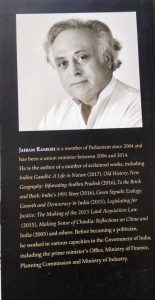
‘Intertwined Lives: PN Haksar and Indira Gandhi’ brings to the fore the life and times of Haksar, who was pivotal in the making of Indira Gandhi, the leader. Haksar was one among the triad of the ‘Kashmir mafia’ and was instrumental in shaping some of the crucial policies of the Indira regime. Ramesh’s ‘first and definitive’ biography tells the entire story in scintillating details. Culled out from official documents, memos, notes and letters, Ramesh has constructed the life of a man who was many things to many people. As Jairam Ramesh told an interviewer, Haksar had left behind a large treasure trove of papers and writing a good biography was only a logical conclusion.
The biography tells us about the man behind the scenes. Haksar’s was an extremely fascinating personality and he led from behind at the most turbulent period of Indian politics. It narrates how Haksar and Indira spent their student days in London (1930), how Mrs. Gandhi brought Haksar to the PMO as her secretary and how he was influential in every administrative task and at every rung of policy-making.
Ramesh argues that it was the brawny policies – of which Haksar was the real architect- that made Indira Gandhi history’s ‘iron lady’. Even in 1987, Rajiv Gandhi used him as his special envoy to China to open the doors to reconciliation with that country.
Ramesh says elsewhere, ‘he (Haksar) had a critical role in the making of Indira Gandhi. The Indira Gandhi of 1966-67 was tentative and cautious, but the Indira Gandhi of 1969 was a tigress. Haksar had a major role to play in the transformation of Indira Gandhi. He gave her the confidence of his conviction and helped her to develop the confidence of her conviction. But Haksar remained frozen in time, whereas Indira Gandhi actually evolved and outgrew Haksar by the late 70s.’
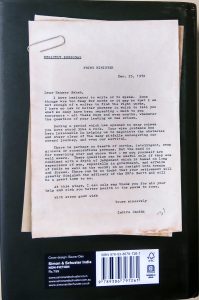
Jairam’s biography also tells us how in January 1973, Haksar was on bad terms with Indira Gandhi and how both of them had to reconcile to a new reality. What’s more, it gives us a detailed account of how from a Marxist Haksar became a democratic socialist.
Yet another requisite account in this life -story is Haksar’s complete detachment from all governmental responsibilities after 1977.Ramesh acquaints us with, rather convincingly, the truth that till his death in 1998, Haksar worked ceaselessly to strengthen India’s secular traditions.
Running into five hundred pages and neatly divided into twelve chapters with some exceptional photographs, this work of ‘formidable scholarship’ brings to life a man who was one of India’s last ‘Cold Warrior and die-hard socialist’. To the extent that Haksar made Indira Gandhi a strong prime minister through populist measures half a century ago, this book is a veritable account of the man and his mission.
Jairam Ramesh’s biography of PN Kaksar will be of great help in understanding India’s modern diplomacy – with particular reference to the military pact with the Soviet Union – , the neighborhood complexities and Indira Gandhi’s contentious economic plans.
‘Intertwined Lives: PN Haksar and Indira Gandhi’
By Jairam Ramesh
Simon & Schuster India
818, Indraprakash Building
21, Barakhamba Road
New Delhi 110001
2018
Rs. 799
(The writer is a senior journalist and currently associated with OdishaLIVE as Consulting Editor)

